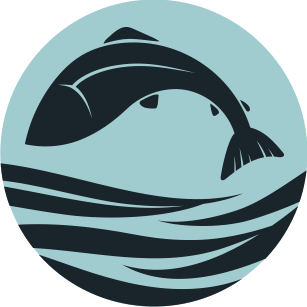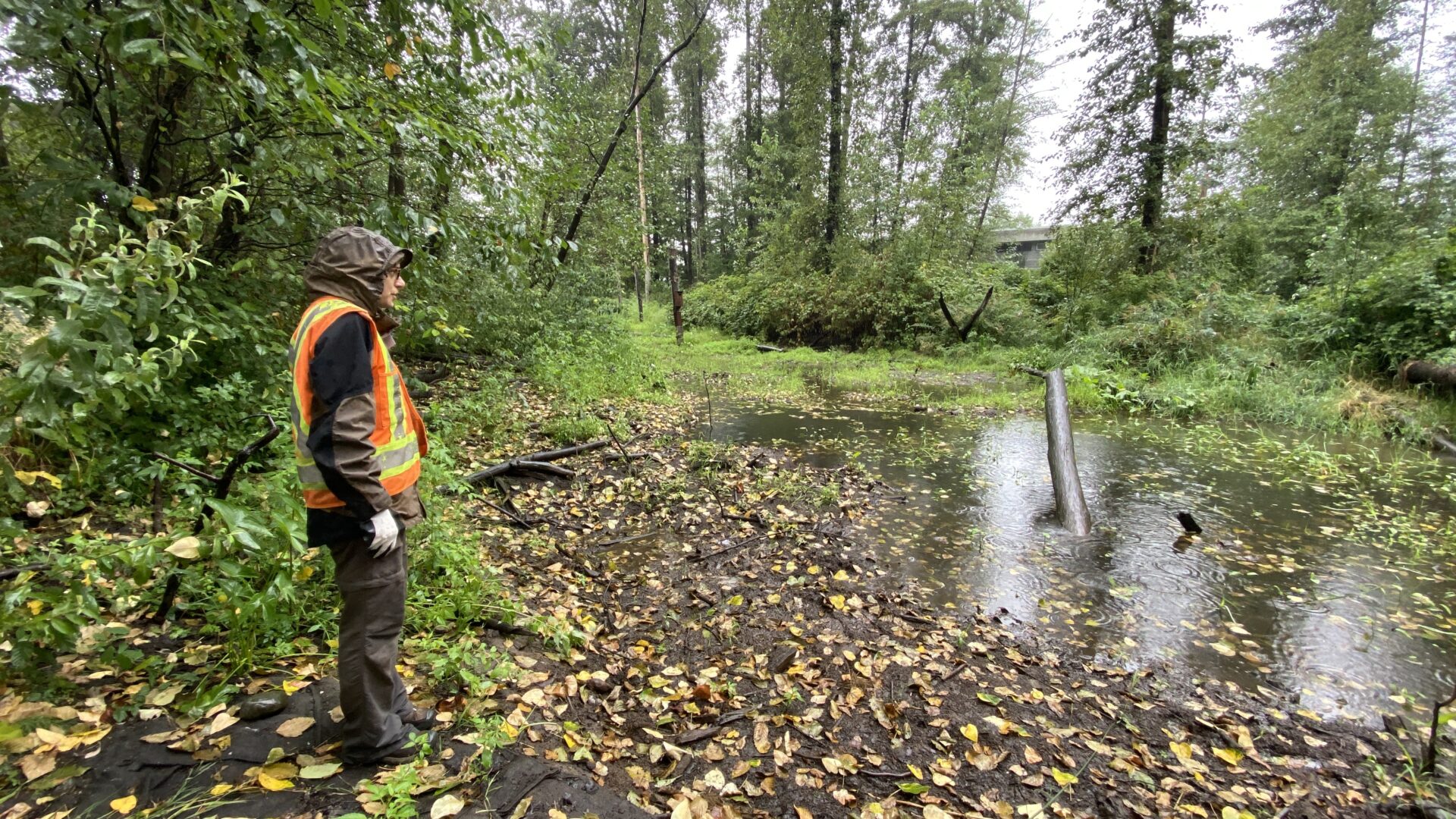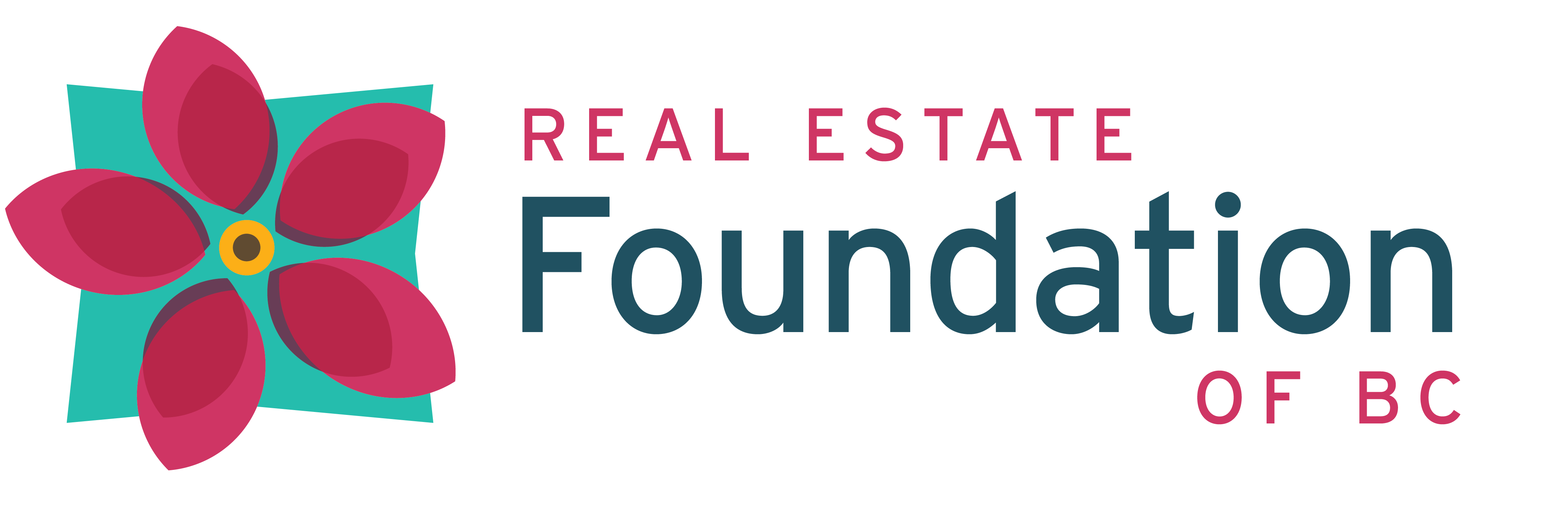Restored Wetlands Demonstrate Resilience
We all witnessed the extraordinary events after the combination of snowfall at higher elevations and an atmospheric river created a deluge of water with catastrophic results. Expecting the worst, members of the stewardship group Wildcoast Ecological Society surveyed the MacKay Creek project site, a small salmon-bearing stream in North Vancouver that empties into the Burrard Inlet. During rain events, this creek commonly overflows, flooding along its banks and occasionally into nearby streets. However, immediately after the massive flooding events in November 2021, the water rose about half a meter at the most, with no overland flowing at all.
The most likely reason the creek did not spill out of its banks is that floodwater had the opportunity to disperse and gradually flow into the creek. Wildcoast had previously helped create a small wetland adjacent to the creek, and the City of North Vancouver added a channel that slows water movement. The wetland, known as MacKay Marsh, was built with help from the District of North Vancouver, North Shore Wetland Partners and Echo Ecological Enterprises. This marsh provides an area for water from nearby storm drains to collect and progressively flow into the creek. Restoration efforts added native plant species that hold soil in place, slow water flow, take up pollutants and provide wildlife habitat. During significant rain events, water from the creek also can flow into the wetland.
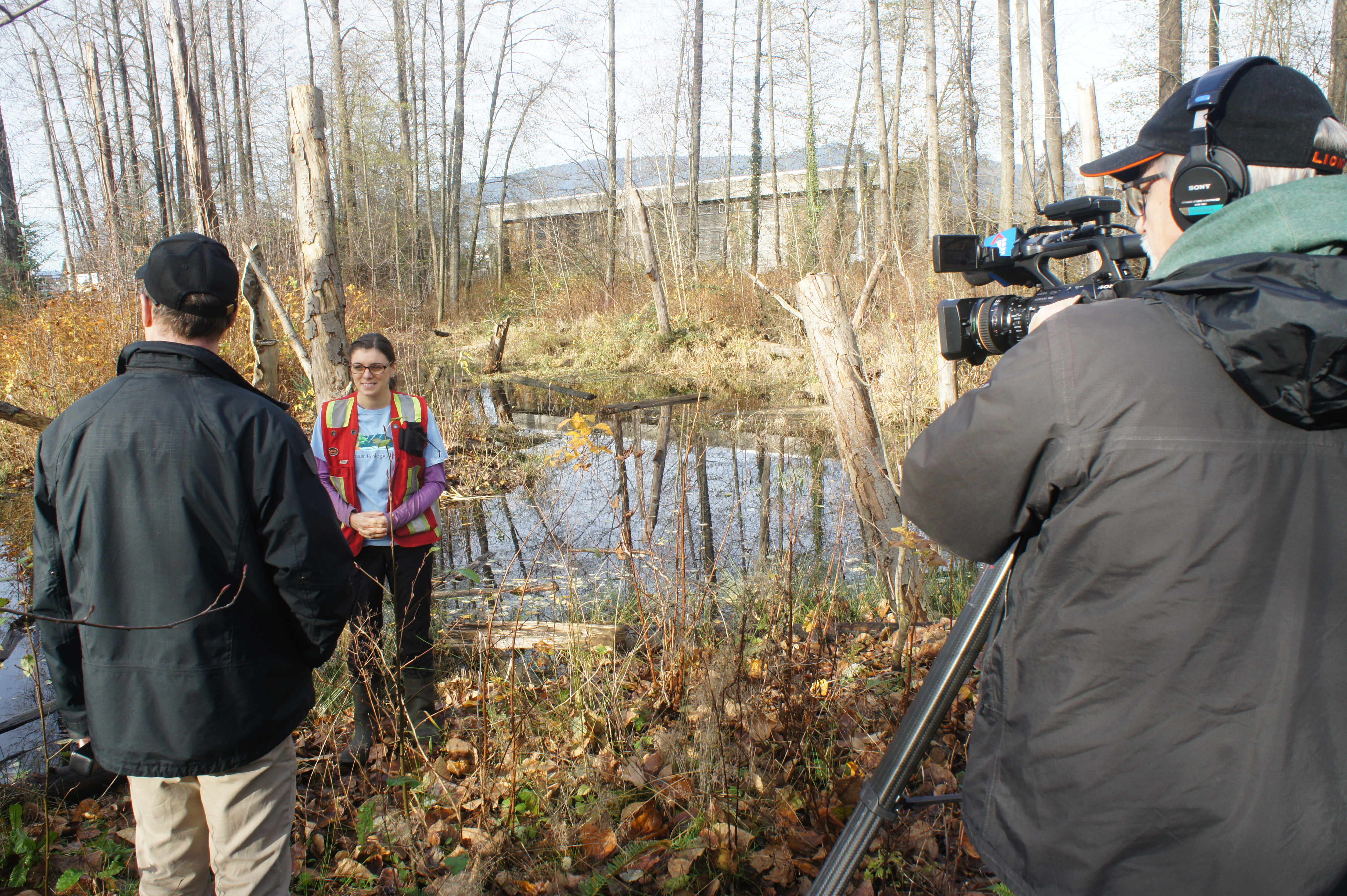
Krystal Brennan hosts Global TV site visit with reporter Paul Johnson December 3, 2021. You can view the Global TV story here.
Photo by Claudia Ferris
If these restoration efforts had not occurred, there would most likely have been a very different outcome from the atmospheric river. Before the 20th century, this creek was surrounded by forested areas to absorb excess rainfall that would then slowly feed into the creek through groundwater. Today, like most creeks in Metro Vancouver, its flow is restricted into small culverts and open channels surrounded by roads and buildings. Storm drains collect water from these impermeable surfaces and empty directly into the creek. During high flows, this means a surge of water flows into MacKay and the many other local rivers and streams, often resulting in overland flooding and excess road pollution heading towards the Pacific Ocean.
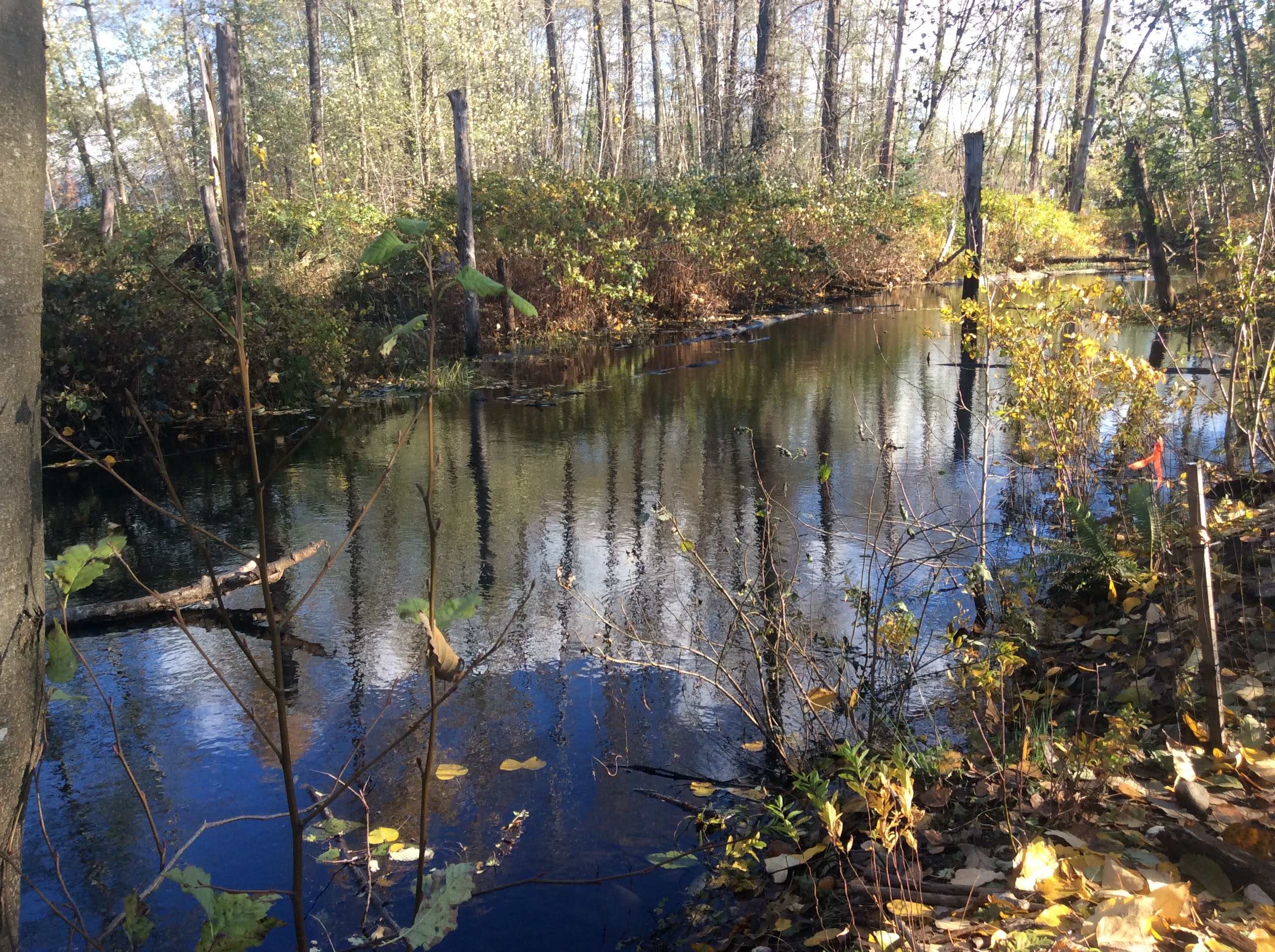
MacKay Creek Marsh, North Vancouver November 16, 2021
Photo by Wildcoast Ecological Society
Funding to Maintain Wetlands and Watersheds
Wildcoast Ecological Society maintained MacKay Marsh in 2021 as part of the B.C. Wildlife Federation’s Wetlands Workforce team. Funding for this work came through the Healthy Watersheds Initiative, which is delivered by the Real Estate Foundation of BC with support from Watersheds BC. While watershed funding was initially designed as COVID-19 relief, we are pleased to see support for building resilience in our wetlands, waterways and estuaries will continue in 2022. Without dedicated funding to rehabilitate wetlands, BC will have fewer mechanisms to protect against major flooding events. In addition, this money provides jobs and encourages nonprofit organizations to learn from and collaborate with Indigenous communities to protect natural resources across the province.
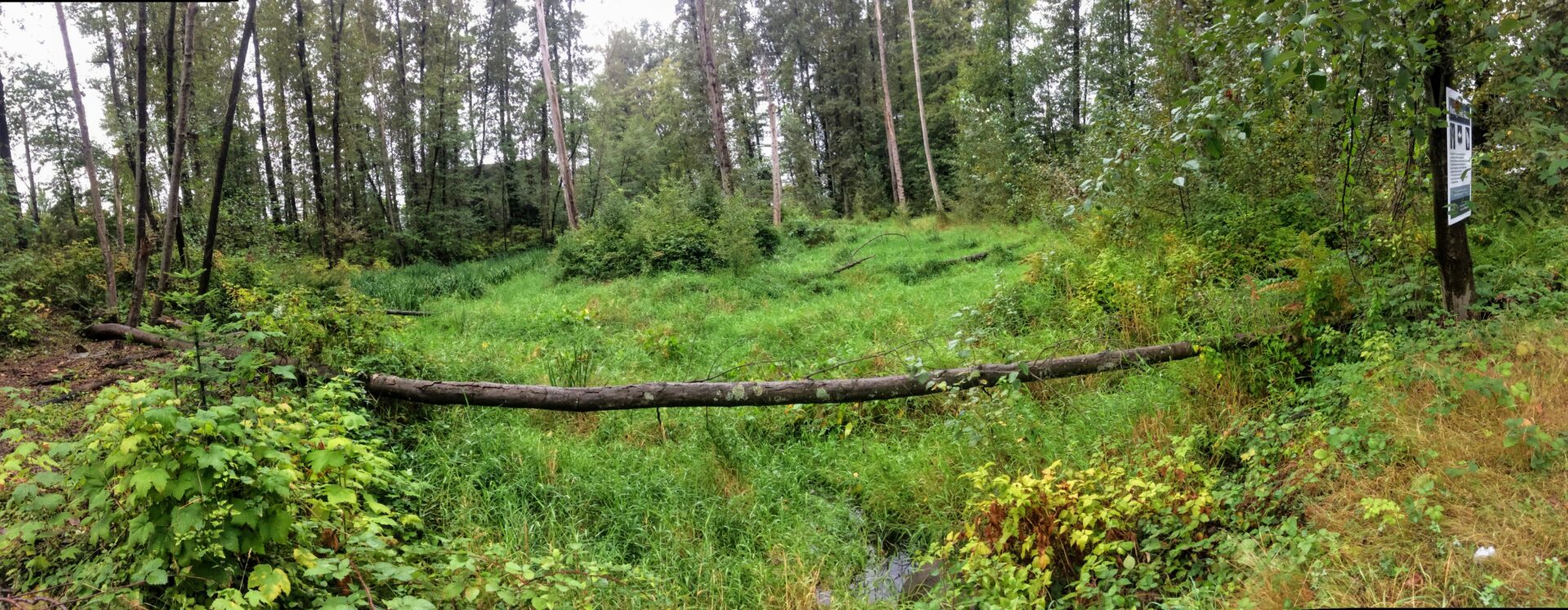
MacKay Creek Marsh Spring 2019 before excavation. 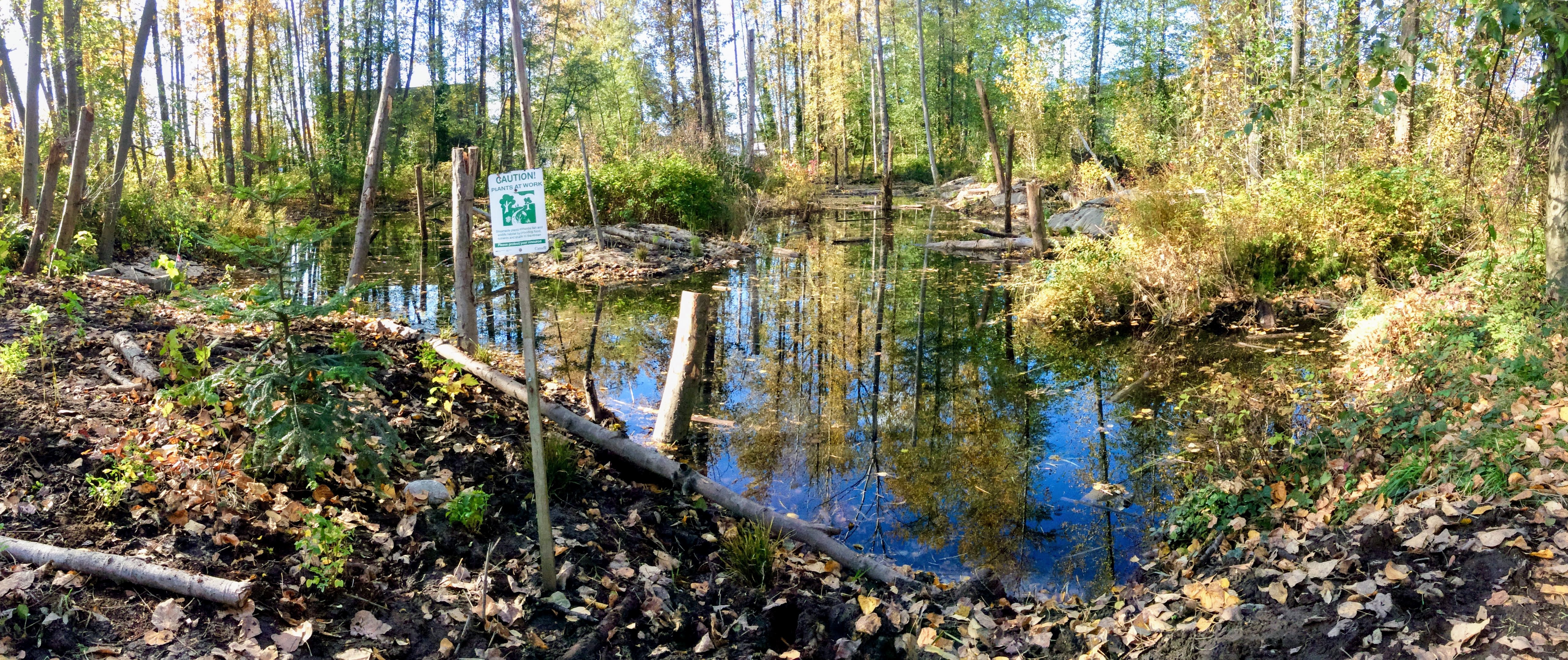
MacKay Creek Marsh Spring 2022.
Scientists predict that storms will occur at higher frequencies and intensities due to climate change. MacKay Creek serves as a small example of a powerful tool for restoring natural defence systems that can protect people during extreme weather events. While governments will spend millions repairing infrastructure damaged by this terrible storm, they should continue to fund preventative measures to create and maintain wetlands. These natural spaces provide many other benefits to people and plants as a bonus.
Background
Wildcoast Ecological Society is a not-for-profit group whose aim is to conduct research, environmental restoration and stewardship activities for degraded ecosystems on the south coast of British Columbia. We strive to fulfil this aim by developing and implementing local restoration projects, involving community members in restoration activities, and by supporting community stewardship projects that protect local ecologically sensitive species and the critical habitats in which they live.
